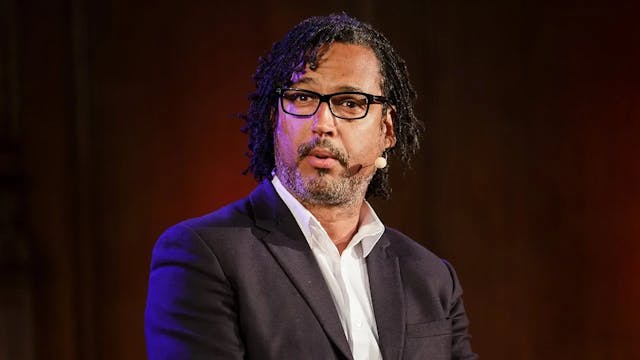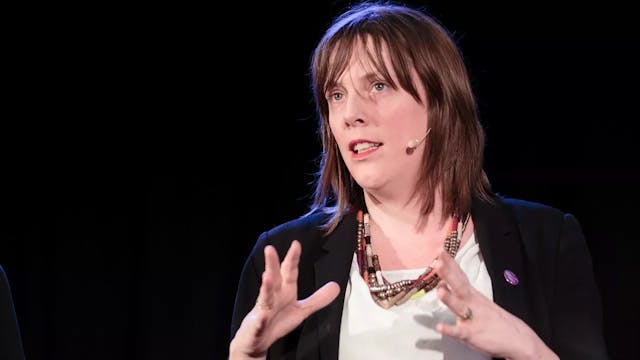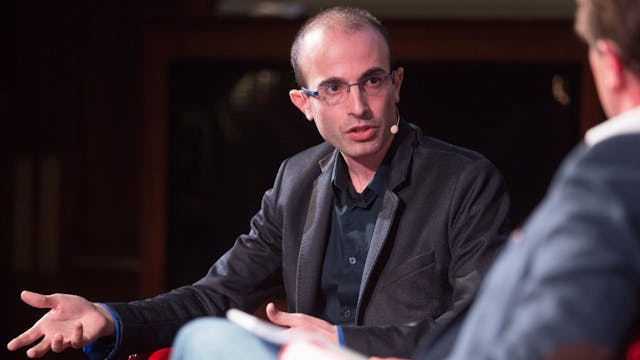Effective Altruism: A Better Way to Lead an Ethical Life
History & Social Policy
•
1h 24m
Almost all of us want to make a difference in our lives. So we give to charity, recycle, volunteer, or cut down our carbon emissions. But are we getting it right? In a world where ever more data is available, shouldn’t we be paying closer attention to the measurable effects of our altruistic actions? Why, for example do we spend so much time and effort researching hotels and restaurants online while we rarely bother to investigate the effectiveness of the charities we donate to? Are we more concerned with feeling good about ourselves than actually doing good?
Enter William MacAskill, rising star philosopher at Oxford University and co-founder of the Effective Altruism movement. MacAskill’s new book Doing Good Better has won acclaim from the likes of Peter Singer and Steven Pinker. Bill Gates, perhaps the world’s greatest philanthropist, has even described him as ‘a data nerd after my own heart.’ By crunching the numbers, MacAskill has shown that the standard ways of doing good often turn out to be less effective than we think. For example:
- Giving to disaster relief is generally not the best way to help the poor.
- Buying sweatshop produced goods generally reduces poverty.
- Buying Fairtrade achieves little.
- Typical charities do a hundred times less good than the best charities.
We need to be more rational and savvy, MacAskill argues, when it comes to giving, and we need to be willing to accept that the best ways to do good are often counterintuitive: If you want to reduce your carbon footprint, he claims, rather than buy local produce you should donate to offsetting charities. If you want to reduce animal suffering, you should first stop eating chicken, not beef. When choosing your career, working for a non-profit isn’t necessarily the most altruistic choice: you can achieve more good over your lifetime by taking a highly-paid job and donating a chunk of your earnings to worthwhile causes. And in order to have the biggest impact, forget the maxim that charity begins at home: you should give money to organisations that save lives in the developing world rather than those that help people at the bottom of the pile in your own rich country.
But not everyone agrees with MacAskill’s utilitarian approach to altruism. Sharing the stage with him in this Intelligence Squared event will be priest and philosopher Giles Fraser. To Fraser, the important point is that we are people, not algorithms, and our personal attachments and loyalties are an important part of our identities. So if it comes a choice between spending a few hours consoling a bereaved friend, or using that time to earn money to give to a good cause, don’t the fundamental requirements of kindness and empathy – the qualities that make us human – make consoling the friend the correct ethical choice? And can it really be right for an individual to choose a dispiriting but lucrative career spanning decades in order to fund a deworming initiative in Africa?
These are some of the ethical challenges that BBC business editor Kamal Ahmed steered our speakers through. In the front row we had heads of charities, philosophers and philanthropists to take part in the discussion.
Up Next in History & Social Policy
-
Revere or Remove? The Battle Over Sta...
In Britain, the Rhodes Must Fall campaign hit the headlines when it demanded the removal of the statue of Cecil Rhodes from Oxford’s Oriel College, of which he was a leading benefactor, because of his colonialism. In the US, violent protests in Charlottesville were sparked by a decision to remove...
-
Feminism Is For Everyone
A year ago, you could have been forgiven for thinking that gender equality was on an unstoppable trajectory. America stood poised to elect its first female president. On this side of the Atlantic, members of the political and cultural establishment proudly sported ‘This Is What a Feminist Looks L...
-
Yuval Noah Harari on the myths we nee...
Myths. We tend to think they’re a thing of the past, fabrications that early humans needed to believe in because their understanding of the world was so meagre. But what if modern civilisation were itself based on a set of myths? This is the big question posed by Professor Yuval Noah Harari, auth...



